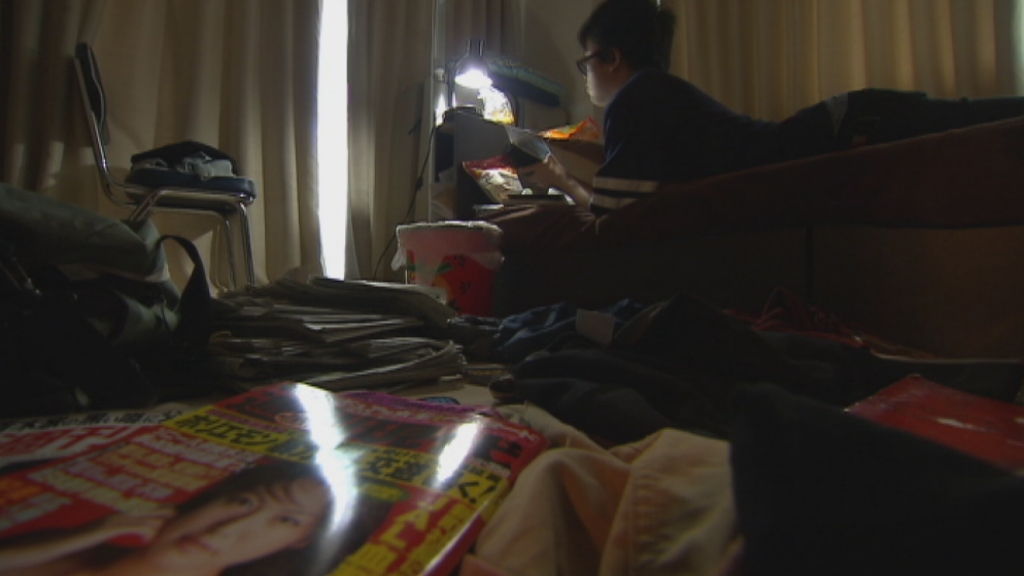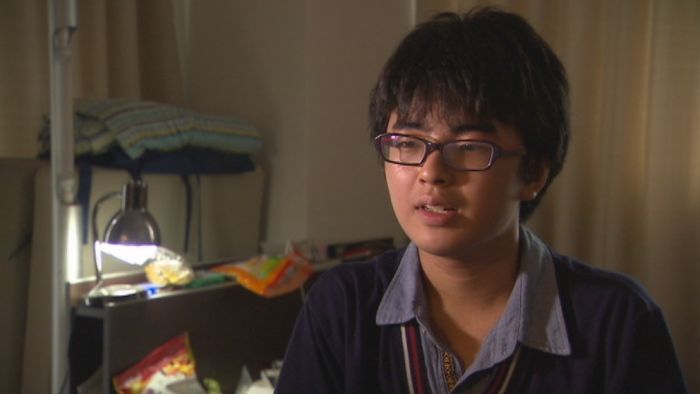Transcript
MARK COLVIN: Japan is grappling with a recent and troubling problem in which hundreds of thousands of people have become recluses.
Estimates suggest that up to a million Japanese people, mostly men, have withdrawn from society – locking themselves in their bedrooms and refusing to come out.
It might sound like fairly standard adolescent behaviour if it didn’t last, not for weeks or months, but years.
Not only is the condition shattering families, it’s also threatening Japan’s economy.
Correspondent Matthew Carney reports from Tokyo.
MATTHEW CARNEY: For nearly three years, Yuto Onishi’s world was his small bedroom. He slept during the day and lived at night, trawling the internet and reading comics.
Yuto refused all contact with friends and family, sneaking out only in the dead of night to eat. The Japanese call the condition Hikikomori.
YUTO ONISHI (translation): Once you experience the Hikikimori lifestyle you lose reality. I knew it was abnormal but I didn’t want to change. It felt safe here.
MATTHEW CARNEY: In junior high, Yuto had failed as a class leader and to cope with the shame and judgment from others he withdrew.
For Yuto and as many as a million Japanese, the pressure from families and society is too much to bear.
Dr. Takahiro Kato is one of the few Hikikomori experts in Japan.
TAKAHIRO KATO (translation): In Western societies, if one stays indoors they’re told to go outside. In Japan they’re not. Our play has changed; it’s all on screens and not real life situations anymore. There’s cultural reasons also; a strong sense of embarrassment and an emotional dependence on the mother.
MATTHEW CARNEY: The causes and treatment are little understood, but Dr Kato is determined to stop the next generation of Japanese boys locking themselves in. He’s leading a team from Kyushu University to decipher the condition.
TAKAHIRO KATO (translation): Most case studies have only focused on the psychological aspect but Hikikimori is not just about mental illness. We’re working on the social and biological aspects as well and want to be the first to provide a multi-dimensional diagnosis.
MATTHEW CARNEY: The road to recovery for Hikikomori can be a long one, and the longer one stays in their room, the less likely they are to make it out.
Dr Kato says recovery can only be successful if the dynamics of family interactions change and that means the whole family has to be involved in counselling. Then the first steps are to rebuild communication and trust.
Yuto Onishi has been out of his room for 6 months. The dream of travelling and working overseas forced him out. Early intervention worked for him.
YUTO ONISHI (translation): Facing your trauma is horrifying, it’s hard to do. If you can do it with someone else then they can show you a different vision of the future.
Yuto is on the road back but the pressing reality for Japan is that most Hikikomori remain in their rooms.
This is Matthew Carney reporting for PM in Tokyo.




